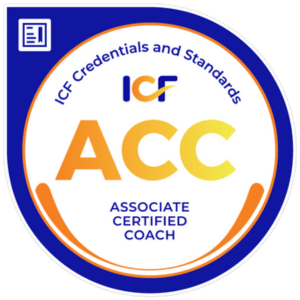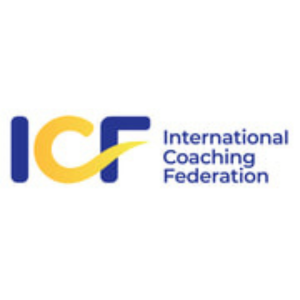|
There are many reasons why it is beneficial for companies to support and encourage wellness in the workplace, including:
Research shows that wellness programs can encourage employees to smoke less, eat healthier food, exercise more and manage stress more effectively. Wellness programs also have been shown to help employees alleviate and better manage the symptoms of depression, improving their overall wellbeing.
A wellness program can have a positive impact on your team's mental health as well. Many companies encourage employees to adopt healthy eating habits and provide nutritious food on-site in order to encourage this behavior. Research shows that eating a nutritious diet not only provides sustained energy levels, but can also reduce feelings of anxiety and depression.
Wellness programs can also add variety into the workday. Educational programs and wellness activities teach employees new things and add an element of fun into the work environment to generate enthusiasm and boost morale.
By participating in wellness programs together, particularly team-based activities, employees can strengthen their relationships with one another, encourage each other and hold one another accountable for their goals. Taking part in wellness activities outside of the workplace can also help with team bonding and camaraderie, which further improves communication and collaboration in the workplace.
By including wellness benefits in your compensation package, you can attract more talented candidates. Companies can also use wellness programs to create a strong sense of loyalty among their employees and improve long-term retention. Tags:
0 Comments
Playing golf has so many benefits for both your physical and mental wellbeing. Whether you're a seasoned player or thinking of taking lessons for the first time, golf is a great sport for everyone.
1. Golf is a great way to get some exercise Playing a round of golf can help improve your cardiovascular health and help you lose weight. Golf is also an excellent way to enhance your strength and flexibility. Playing golf can improve your overall fitness level and reduce your risk of developing health problems. Assuming you walk the course (and don’t take a golf cart), you can quickly burn over 2,000 calories by playing 18 holes. 2. Golf is very social sport Golf is a great way to socialize, meet new people, and make new friends. If you’re looking to network and advance your career, there are numerous golf clubs and organizations that you can join. Golf is also a great way to spend time with family and friends. Whether you’re playing in a group or in pairs, golf allows you to interact with others and have some fun. Playing golf will significantly improve your social skills and confidence if you’re an introvert. 3. Golf is a great way to spend time outdoors There’s nothing quite like being out in nature, enjoying fresh air and sunshine while playing a round of golf. It’s the perfect way to relax and get some exercise simultaneously. Plus, golf courses are often located in beautiful, scenic areas, so you can admire your surroundings while you play. 4. People of all ages and abilities can enjoy golf Whether you are just starting or have been playing for years, golf provides a challenge that can be both enjoyable and frustrating. The frustration of hitting the ball perfectly can be offset by the satisfaction of finally sinking that elusive putt. For experienced players, golf can be a way to test your skills and compete with friends. However, no matter your level of experience, golf is a game anyone can enjoy. 5. Golf is a challenging sport that requires focus and discipline Anyone who has ever tried golf knows that it is not as easy as it looks. It takes great focus and discipline to hit the ball cleanly and even more skill to make it go. For many people, golf is the perfect combination of challenge and relaxation. It requires just enough mental effort to be stimulating, but not so much that it becomes frustrating. And while the physical demands of the sport are not insignificant, they are often overshadowed by mental challenges. In short, golf is a unique sport that offers something for everyone. So, whether you are looking for a fun way to spend an afternoon or a challenging way to improve your game, golf is worth a try. And, once you’re hooked, you will always look to get better in golf. 6. Golf can improve your mental health Playing golf can help you focus and relax, improving your overall mood. But, for many people, golf is more than just a game. It’s a way to escape the stresses of daily life and clear your mind. The repetitive nature of swinging a club and hitting a ball can help focus your thoughts and calm your nerves, and the fresh air and peaceful surroundings can elevate your mood and provide a much-needed break from the hustle and bustle of everyday life. 7. Golf is a great way to travel and see new places Golf can take you to some pretty unique places. There are some great golf courses across the world, and many of them are located in some pretty amazing locations. Playing a round of golf is a wonderful way to see a new place, explore its beauty, while creating lifelong memories. Each course offers unique scenery, from the rolling hills of Scotland to the stunning coastlines of Australia. There’s something special about being able to explore a place while playing a game that you love. 8. Golf is great for business Golf is often seen as a game for business people, and there’s a good reason for that. Playing a round of golf can provide you with opportunities to discuss business deals and partnerships. Golf can also help you develop new relationships with potential clients and customers. But golf isn’t just for business people. It’s a great way to network with people in your business community. And even if you’re not interested in doing business on the golf course, it’s still a great way to get out, enjoy some fresh air, and spend time with friends. So, whether you’re looking to close a deal or just have some fun, golf is a great choice. 9. Ability to play into your old age Playing golf helps you stay active in retirement. Unlike other sports that may require more vigorous physical activity, golf is a relatively low-impact sport that people of all ages can enjoy. With proper technique and conditioning, you can play golf for decades. In addition to the physical benefits, golf also allows socializing and meeting new people. Many golf courses have clubhouses where players can relax after a round of golf. These clubhouse amenities often include restaurants, bars, and locker rooms. Golf can allow you to stay active and socialize with other like-minded individuals in retirement. So, if you’re looking for a lifelong activity that you can enjoy well into retirement, golf is the perfect option. 10. Golf builds your character Golf is often seen as a leisurely activity but can be mentally and physically challenging. It requires careful planning and precision, and even the slightest mistake can lead to frustration. This is why golf is such a great way to build your character. It teaches you how to handle disappointment and deal with difficult situations. It also helps you learn how to be patient and stay calm under pressure. These are all skills that can be applied in other areas of life, and by learning them on the golf course, you’ll be better prepared for whatever life throws your way. So next time you tee off, remember that you’re not just playing for fun – you’re also building your character. Conclusion Whether you’re looking to escape daily life stresses, travel to amazing places, or just stay active in retirement, golf is a great choice. This sport provides many benefits that people of all ages can enjoy. So, if you’re looking for a new hobby or just want to try something different, golf is worth a shot. Who knows, you might just end up falling in love with it. I hope this has convinced you to give golf a try. Get in touch to discuss how you can get started with golf today! Tags:
I had a lovely conversation with one of the sponsors of the Soft Skills program this weekend. It was around spotting someone's real ability, something that is unique to them. This reminded me of something I used as a teacher to get the best from my students. We know we're all unique, but those of you who lead or have responsibility for others, do you know what really makes them tick? Remember this. "The person born with a talent they are meant to use will find their greatest happiness in using it." Johann Wolfgang von Goethe (poet) When I was young, Multiple intelligences were all the rage, It was theorized that people (in this case students) were smart in so many ways, recognizing this, we then attempt to reach the student in a different way. At work, how often have you heard the same rhetoric and thought, " Insanity is doing the same thing over and over again expecting a different result!" Tip of the week, "Try something different" If you get a chance this week, try one or more of these skills and see which resonates with your charges. You may find, they suddenly come to life. The "multiple intelligences" our people have include. Verbal/linguistic: These people are stimulated by written and spoken words. They have skills in listening, speaking, reading, writing, encoding, and decoding language Logical/Mathematical: These people are stimulated by patterns, relations, numbers, and symbols. Their skills involve problem-solving reasoning logic numerical skills Visual/Spatial: These people are stimulated by color shape and distance their skills include a good sense of direction, architecture, painting, sculpting, arranging, and decorating Musical/Rhythmic: These people are stimulated by rhythm pitch and timbre. Their skills include composing, performing, appreciating, and recognizing music Bodily/Kinesthetic: These people are stimulated by bodily cues. Their skills include dancing, catching, throwing, jumping, and handling objects. They move with grace and precision Naturalists: These people are stimulated by flora, fauna, rocks, and clouds. Being outside. Their skills include a green thumb, animal husbandry, discriminating, recognizing, categorizing, and analyzing Interpersonal: These people are stimulated by desires, motivation, and the feelings of others. Their skills include an accurate social map, empathy, the ability to organize and lead groups, understanding the connection with others, conflict resolution, and census-seeking skills Intrapersonal: These people are stimulated by emotions, impulses, moods, and deeper thoughts. Their skills include self-knowledge, accurate self-concept, evaluation, self-direction, and impulse control I know there may not be an opportunity to utilize all of the above, but you know your people, what have you spotted and thought, "how could I use that to help develop them?" These may just help. Any questions please reach out. For schools, I have activities to develop these skills in the students. For the workplace, this is about recognizing what will get the best out of your team members. Tags:
The beginning of another week, these weekends seem to fly by too fast. I hope yours was productive and you made time for yourself.
This week I am happy to share that I have all the feedback and analysis from my soft skills program that was run as part of the Junior Leaders After School Program which was coordinated by the YMCA. The students, facilitators, and coordinators all agreed that the Soft Skills program was well received and a valuable experience in preparation for future, new, and existing employees. One of the biggest things that I took from this, and most people know I will do anything to empower the youth of our great nation, was that actually these skills of Communication, Active listening, Teamwork, Collaboration Responsibility, and Accountability (there are 12 we cover in all) are also of immense value to those who have been in employment for a good period of time already. People who are considering their personal development could do worse than developing their soft skills. in fact, this little quote is so true, and we, at every level should take note. "Soft skills get little respect but can make or break a career:" -Peggy Klaus author and Executive Coach Teaching students, even the basic understanding of soft skills will give them the EGDE they may need when it comes to running groups, being part of a school committee, preparing for transition into higher education or work, and of course, making outstanding contributions to our society. I could go on about the importance of Soft Skills, in fact, I do when delivering this program. but i won't today as I know you have work to do. Instead, I will leave you with our tip of the week to ponder. "Focus and highlight the Soft Skills that are fundamental to your day" If customer service is your thing, how clearly are you communicating, how well are you listening to your clients? If you run a small business, these are important too along with teamwork and collaboration. How good are the links between your stakeholders? Finally, my favorite subject, teachers, creativity is paramount for an engaging lesson, dig into your resources and enjoy the risk of creativity. Remember "there is no I in team", so reach out to your network for support. I hope you have a great week, focussing on improving your Soft Skills Tags:
I don't know about you, but these weeks coming to the end of the year, are getting very busy. With this in mind, I thought it would be prudent to bring up one of my favorite topics.
We should all be mindful of the stresses the holidays bring to families. Whether it'll be financial, family matters like presents for the kids or the thought of having to spend an elongated amount of time with the in-laws (I'm sorry), these are all things people who are normally relaxed, are beginning to think about. How do you as their boss, friend, or regular acquaintance navigate this? Before I give you a thought on how to support this situation, I would like to share this quote, which I often say to clients. “Instead of worrying about what you cannot control, shift your energy to what you can create.” ― Roy T. Bennett Creating a positive from a challenge is always a consideration and a good way of turning stress into a controllable setting. So, to help you with this, practice mindfulness. “Mindfulness is an awareness that arises through paying attention, on purpose, in the present moment, non-judgmentally.” It helps you accomplish more things at work and enjoy more of your personal life. Here is a good mindfulness exercise for you to practice this week. Listen when people speak. Really listen How much of what others say do you think really gets through? How often do you find yourself consumed with thoughts or seeking distraction while someone else is speaking? Listening is a great anchor to mindfulness. Whenever you're in a conversation, aim to pay closer attention, make eye contact, and ask questions to fully take in what the speaker is saying. You’ll gain more insights and form a deeper bond. In coaching, this practice is a cornerstone to our client’s successes, and I believe it can make you much more supportive. Here is your tip of the week “Respond; don’t react. Listen; don’t talk. Think; don’t assume.” Give it a go and let me know if it has an impact on your week. Remember; “Life is a dance. Mindfulness is witnessing that dance.” Amit Ray Be ready to spot and support a stressed colleague, it'll help you have a great week. Take care of each other. Tags:
|
AuthorRichie Forde Archives
February 2024
Categories |




